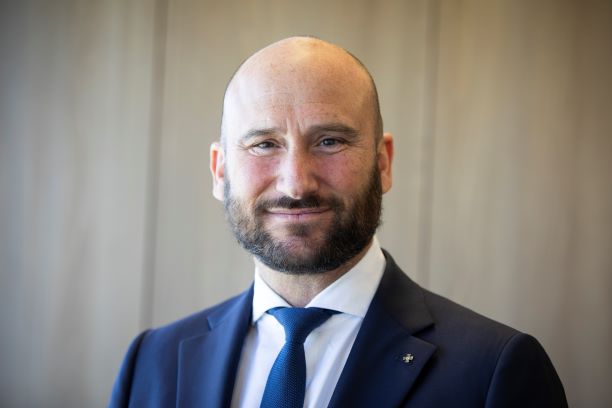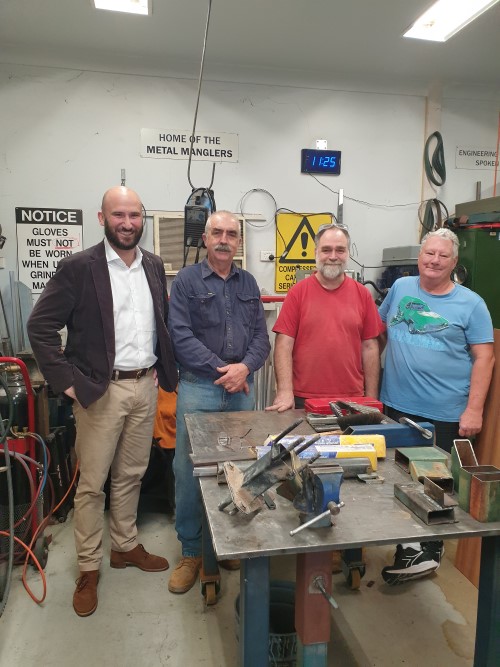Challenging the ‘Broken Digger’ narrative

Kahlil Fegan DSC AM
Repatriation Commissioner
Some personal reflections on a year as Repatriation Commissioner
I write to you just over 1 year into my role as your Repatriation Commissioner and in continued appreciation of the opportunity to serve the veteran community. Noting this role has been in existence for more than 100 years, I believe these last 12 months have been particularly impactful in the veteran ecosystem.
We have seen new leadership engrain themselves at the head of the DVA and the ADF. The Royal Commission into Defence and Veteran Suicide has released its monumental findings and 122 recommendations. The harmonisation of our complex legislative systems is before the Parliament; and throughout, our veteran-related issues have featured dominantly in our media and social consciousness.
Whilst I have immersed myself in each of these matters, and many others, it is my learnings regarding why we have veteran related legislation that have been personally most impactful. Australia has veteran legislation because as a nation we made a commitment to support our veterans at the start of the First World War. As a country, we have honoured this commitment to varying degrees, and have arguably the most generous and comprehensive veteran support legislation in the world. But why is it comparatively so good?
In its infancy and as engrained in the Australian Soldiers’ Repatriation Act 1920–1941, our young nation’s intent was to support our detrimentally impacted veterans and families by giving them a ‘leg up’. To give those who were wounded the ability to work. To support a widow to raise the next generation, provide a farm to a veteran to help feed a growing nation. It was about recognising the value of veterans and investing in them and their families so that they could continue to support Australia.
Our veterans represented the best of our young workforce and we needed them – during time of war, and afterwards. Hence, not only was our legislation an obligation, in many ways it was an investment in our country’s future. This is, I believe, why the basis of our legislation is comparatively so good.
My other learning has been about the immense value of our volunteer service organisations and the role of society. Here I have encountered and worked with hundreds of outstandingly wonderful people, deeply committed to supporting those in need and filling what will be an inevitable gap between what Government can do and what a veteran may need.
I cannot thank and acknowledge these many people enough. I have seen them work throughout the night, donate their own money, and give up valuable family time to support others. I have experienced the impact these people and organisations can have, particularly when they work in collaboration with DVA and others. It’s a beautiful thing and impressive manifestation of the commitment this nation made more than a century ago.
My third and final key learning regards our veteran challenges. The Department can only do what Government-endorsed legislation enables it to do. It can only spend money, award grants, and provide services in strict compliance with laws and regulations. This is life. DVA aspires to be ‘world’s best practice’ at that which it can do, and our society has an important obligation to do what DVA can’t. Here society and others must work in partnership with DVA in order to provide whole and connected support down to the local level.
Much like at the end of the Second World War, Australian society needs to recognise the immense value of our large veteran community. Society must willingly seek to invest, to enable our veterans and families to contribute meaningfully, in big and small ways to our country. Yet unfortunately many in society see veterans as potentially broken, suicidal, needing welfare, angry and abusive. We know this is far from the truth but why do so many in the general community see us this way – as ‘Broken Diggers.’?
This disappointing and highly inaccurate depiction undermines our collective value and compromises our reputation – none of which is good for us or Australia. Now, as our nation faces new security challenges, we have an opportunity to refocus and highlight the immense value of veterans – whether serving or not.
As a veteran community let’s more passionately celebrate and highlight veteran achievements. Let’s proactively reiterate that veterans are worthy of investment because they are professional members of our society who have received some of the world’s best training. They are experienced sailors, soldiers and aviators, non-commissioned officers and officers with a wealth of experience. They are successful business owners, accomplished public servants, and elders who can teach the young much about resilience and teamwork. They are valuable members of our society and should be invested in, not undermined.
We should be celebrating the resilience and strength of Australian veterans and their families.
It’s up to all of us. If we can improve societal perceptions, we will do much to reinforce the value for Australia of veterans, their families and service. Please – next time we see or hear of one of us who may be unwittingly undermining this message – can we encourage them to reconsider?
More importantly, let’s tell our story and demonstrate our strength. By doing so, society will be more inclined to recognise the merit in enabling a veteran and complementing between what Government can do and what a veteran or family may need. After all, this is why we as a nation made a commitment to support our veterans more than 100 years ago.
The Australian Veterans Brain Bank
I recently made the decision to donate my brain to the Australian Veterans Brain Bank after my death.
It is a highly personal decision but one that I hope will assist us to better understand brain disorders among veterans in the future.
During my military service, I was exposed to blasts, concussions and other traumas.
I take the view that if I can do something after my passing to help ensure that the next generation of Australian veterans is better supported through increased knowledge of how service impacts them, then I should.
If you’re interested in pledging your brain, I encourage you to find out more information at: www.veteransbrainbank.org.au.

With veterans at the Veteran Support Centre in Canberra
